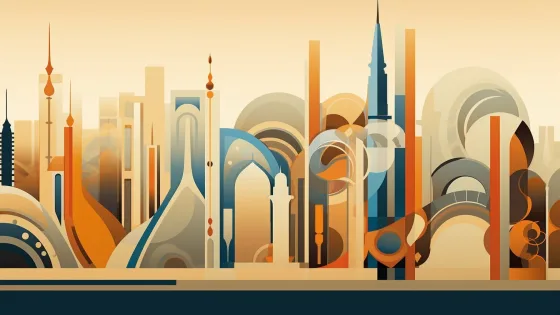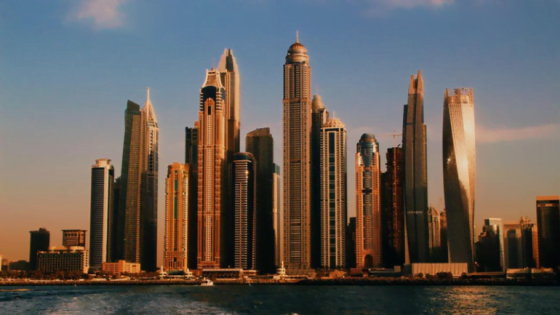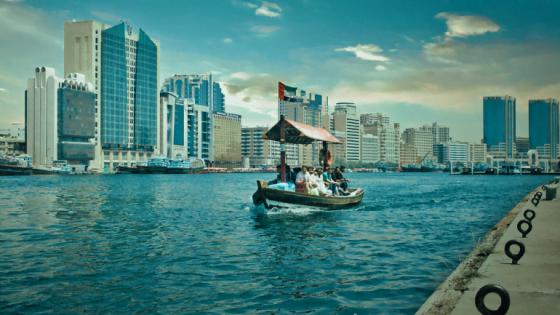Contents
- 1 Key Takeaways about a paragraph about history of the UAE
- 2 The Prehistoric Origins of the UAE
- 3 The Ancient Trade Routes and Early Inhabitants
- 4 The Islamic Era and UAE’s Role in Early Trade
- 5 The Portuguese and British Influence
- 6 The Formation of the UAE: Unity and Independence
- 7 The Economic Transformation and Modernization of the UAE
- 8 UAE’s Role in Regional and Global Affairs
- 9 Milestones and Achievements of the UAE
The United Arab Emirates (UAE) has a rich history that dates back to ancient times, with evidence of human settlement as far back as 125,000 years ago. The UAE’s cultural heritage is shaped by its location at the crossroads of trade routes, diverse population, and proximity to the Arabian Gulf. From prehistoric civilizations to modern-day achievements, here is a paragraph about history of the UAE, a fascinating journey of growth and development.
Key Takeaways about a paragraph about history of the UAE
- The UAE has a long and diverse history dates back to prehistoric times.
- The country’s cultural heritage is shaped by its location at the crossroads of trade routes and its diverse population.
- Significant milestones, including the formation of the federation and rapid economic transformation, have marked the UAE’s journey of growth and development.
- The history of the UAE is a testament to the nation’s resilience, innovation, and progress.
The Prehistoric Origins of the UAE
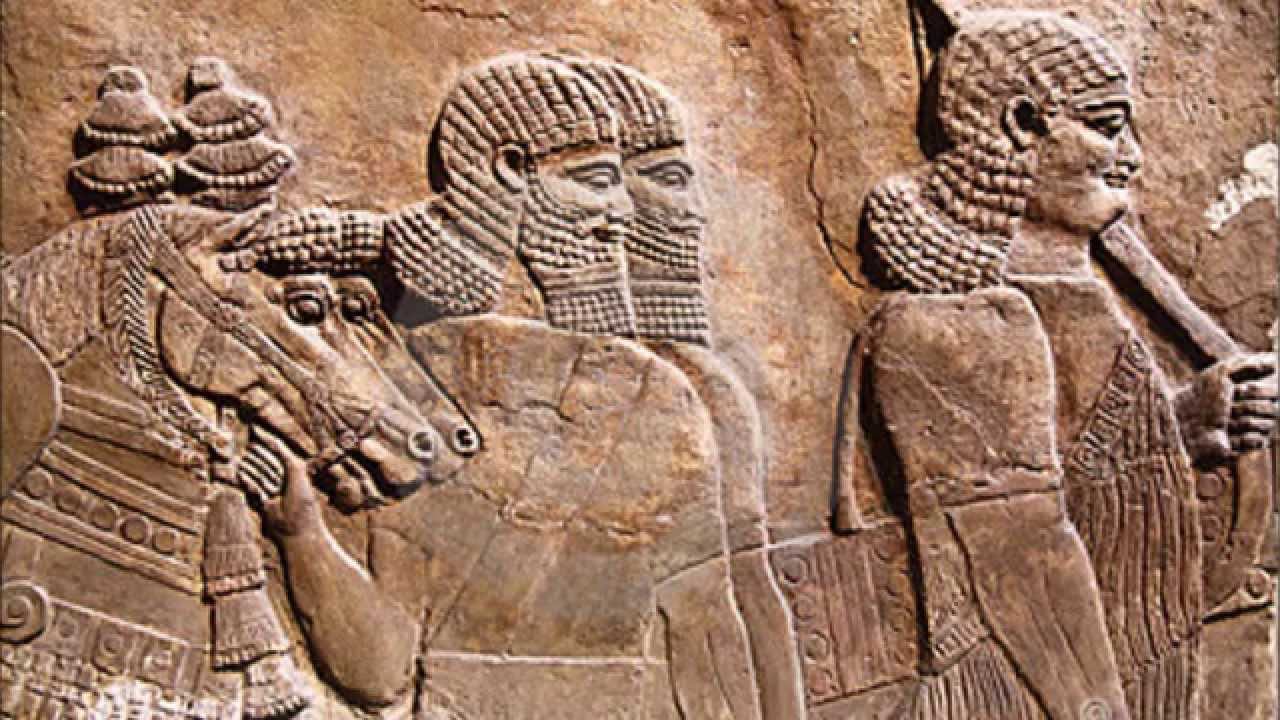
The UAE has a rich history dating back to prehistoric times. Archaeological evidence suggests that the region that is now the UAE was home to a thriving civilization as early as 3,000 BC.
Excavations at sites such as Al-Ain and Al-Gharbia have revealed the existence of advanced irrigation systems and well-planned settlements, indicating a high level of sophistication in early Emirati societies.
The early inhabitants of the UAE were known for their trade and commerce activities, particularly in producing and exporting pearls, which were highly valued as luxury items in the ancient world.
The region was also an important stopover point for ancient trade routes that connected the East and West, such as the Silk Road and the Incense Route.
Over time, the UAE became a melting pot of different cultures and civilizations, including the Persians, the Greeks, and the Romans, all of which left their mark on the region’s rich cultural heritage.
“read more: Explore the Rich History of UAE in Urdu“
The Ancient Trade Routes and Early Inhabitants
The paragraph about history of the UAE is marked by a rich cultural legacy that dates back to ancient times. The region’s strategic location at the crossroads of important trade routes made it a melting pot of different cultures and civilizations.
Before the arrival of Islam, the UAE was home to various tribes and settlements, including the Umm Al Nar civilization and the Dilmun civilization. These early inhabitants were known for their skilled craftsmanship, complex social structures, and advanced trading networks.
The ancient trade routes passing through the UAE connected the region to the Indian subcontinent, Mesopotamia, and Egypt, allowing for exchanging goods and ideas. The UAE’s strategic position along these routes made it a hub for the international trade in pearls, gold, spices, and textiles.
Over time, the region’s culture and economy were influenced by various outside powers, including the Persian Sassanian Empire and the Islamic Caliphate. Despite this, the UAE’s indigenous culture and heritage persisted, reflected in its unique traditions, music, and art.
The UAE’s early history is a testament to the resilience and adaptability of its people. By fostering a spirit of innovation and collaboration, they built a prosperous society that continues to thrive today.
“you may read: Exploring a Short History of UAE: A Brief and Insightful Journey“
The Islamic Era and UAE’s Role in Early Trade
During the Islamic era, which began in the 7th century, the UAE played an essential role in trade between the Middle East and the rest of the world. The location of the UAE on the coast of the Arabian Gulf made it a vital link between the Indian subcontinent, the Far East, and the Mediterranean.
The Islamic era also saw the spread of Islam in the region with the arrival of Muslim traders and merchants. The religion quickly gained a foothold among the local population and became integral to the UAE’s culture and society.
The UAE was an important centre for trade in the region, with Dubai emerging as a critical hub for maritime commerce. The city’s strategic location made it an ideal destination for traders and it soon became a center for pearl diving and fishing.
The UAE’s prosperity during this period was also due to the trade routes that connected it to other parts of the world. The Silk Road, for example, was a vital trade route that connected China, India, and the Mediterranean, with the UAE serving as a crucial stopover for goods and merchants. The UAE also played a role in the spice trade, with various spices, including frankincense and myrrh, being exported from the region.
Overall, the Islamic era was a significant period in the UAE’s history, contributing to its development as a hub for trade and commerce and its emergence as an influential player in the region.
“please read: Short History of Dubai; Guide to Timeline of Dubai City in the United Arab Emirates Country“
The Portuguese and British Influence
Various external forces shaped the UAE’s historical journey, including the Portuguese and British colonial powers. The Portuguese arrived in the UAE in the early 16th century and established settlements in some coastal areas. Their main objective was controlling trade routes and monopolising the spice trade. However, their influence was short-lived, and the local tribes eventually drove them out.
The British arrived in the UAE in the early 19th century and established a protectorate over some coastal areas known as the Trucial States. Their primary interest was safeguarding their sea routes to India and protecting their trading interests. They also helped establish a stable political environment in the region and played a significant role in developing infrastructure, education, and healthcare in the Trucial States.
The British influence in the UAE continued until the mid-20th century when the UAE’s journey towards independence began. The Trucial States formed an alliance in 1968, which paved the way for the eventual formation of the UAE in 1971. The UAE’s strategic location, stable political environment, and rich natural resources made it an essential player in the global economy.
The Formation of the UAE: Unity and Independence
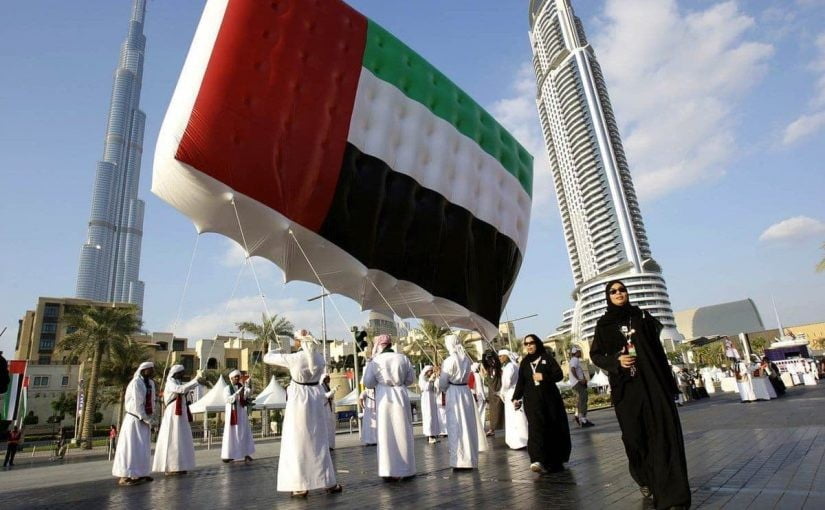
The UAE’s journey towards unity and independence began in the late 19th century with the emergence of the Trucial States, a loose confederation of tribal emirates. British influence increased in the region, leading to treaties granting British control over foreign affairs and defence.
In the 1950s and 1960s, calls for unity among the emirates began to grow, spurred by economic, political, and social factors. The leaders of the seven emirates recognized the need for a stronger and more unified front, and negotiations began in earnest.
The UAE was officially formed on December 2, 1971, with Sheikh Zayed bin Sultan Al Nahyan of Abu Dhabi as its first president. The country became an independent and sovereign state, and its leaders established institutions, infrastructure, and policies that would support the nation’s growth and development.
Since its formation, the UAE has continued to evolve and adapt to changing circumstances, achieving significant milestones and making considerable progress in education, healthcare, and economic diversification. Today, it is a dynamic and forward-looking nation with a rich history that continues to inform and inspire its people.
“may read: Heritage UAE; Intangible Cultural Heritage and UAE UNESCO Heritage Sites“
The Economic Transformation and Modernization of the UAE
The discovery of oil in the mid-20th century revolutionized the UAE’s economy, leading to rapid development and modernization. The country has since become one of the wealthiest in the world, with a high standard of living and a thriving economy.
The UAE’s leadership recognized the importance of diversifying the economy and implemented measures to ensure sustainable growth and development. This included investing in infrastructure, education, and healthcare. The government also encouraged foreign investment and created a business-friendly environment to attract international companies.
The country has also made significant advancements in technology and innovation, establishing itself as a world leader in industries such as renewable energy and space exploration. The UAE has launched ambitious initiatives such as the Mars Hope Probe, intending to establish itself as a scientific research and development hub.
As a result of these efforts, the UAE’s GDP has grown significantly over the past few decades, and the country has emerged as a significant player in regional and global affairs. The UAE’s economic success has also allowed it to become an influential aid donor, providing humanitarian assistance and disaster relief to needy countries.
Several milestones, including establishing free trade zones, developing Dubai as a world-class business and tourism destination, and hosting international events like the Dubai Expo 2020, have marked the UAE’s economic transformation and modernization journey.
Overall, the UAE’s economic transformation and modernization have made it a model for other countries in the region and around the world. The country’s leadership and vision for sustainable growth and development have established a strong foundation for continued success in the years to come.
UAE’s Role in Regional and Global Affairs
The United Arab Emirates has emerged as a major player in regional and global affairs, making significant contributions to peacekeeping, diplomacy, and economic partnerships. The country has pursued a foreign policy emphasising cooperation, dialogue, and mutual respect while promoting its national interests and values.
One of the critical milestones in the UAE’s engagement with the international community was its accession to the United Nations in 1971, shortly after its independence from the British. Since then, the country has actively participated in various UN bodies and initiatives, including the General Assembly, the Security Council, and the Human Rights Council.
The UAE has also been a leading voice in the Gulf Cooperation Council (GCC), a regional organization that aims to enhance economic, political, and security cooperation among its member states. The country has played a vital role in promoting stability and prosperity in the Gulf region, particularly in response to the various security challenges and conflicts that have emerged in recent years.
The UAE has sought to build strategic partnerships with other countries and regions globally based on shared interests and mutual benefits. The country has established strong ties with the United States, European Union, China, India, and other major powers in trade, investment, energy, technology, and culture.
Furthermore, the UAE has been at the forefront of numerous humanitarian and development initiatives to promote sustainable growth, social welfare, and global stability. The country has provided significant aid and assistance to various countries affected by conflicts and disasters and supported programs for education, health, and poverty alleviation worldwide.
The UAE’s engagement with the international community reflects its commitment to promoting peace, security, and prosperity at home and abroad. The country’s history of innovation, diversity, and openness has enabled it to build strong partnerships with other nations and to contribute to the global common good.
Milestones and Achievements of the UAE
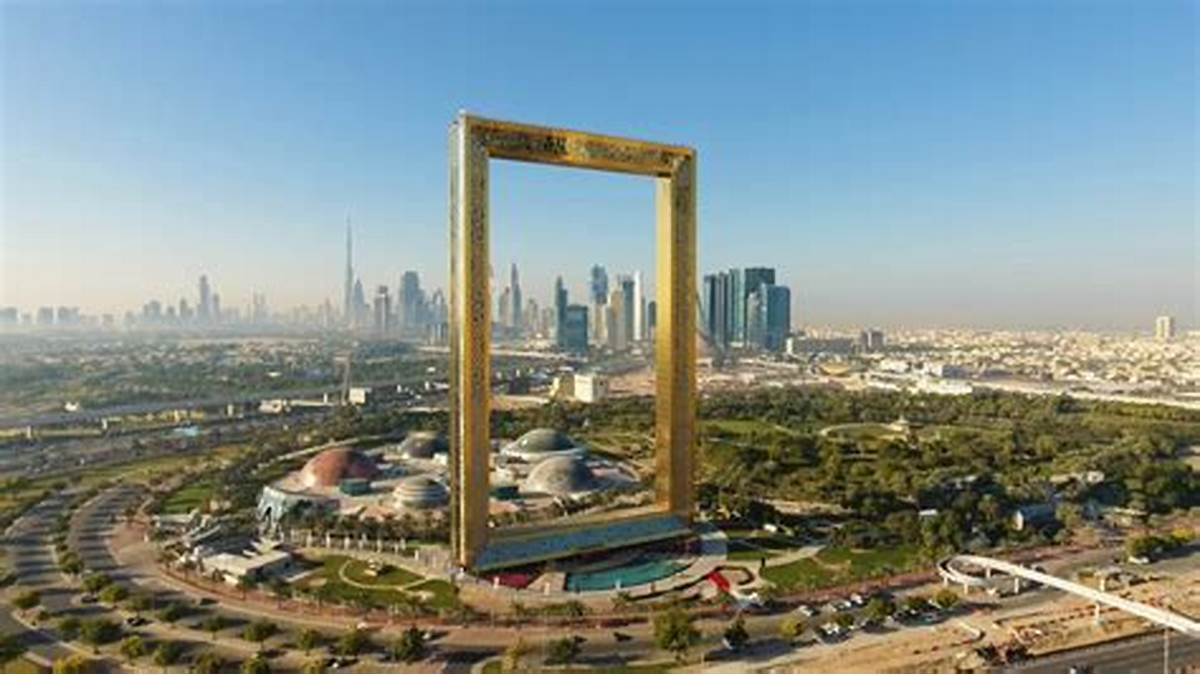
The UAE has come a long way since its prehistoric origins, with a rich history and significant milestones have shaped its identity and place in the world. Here are some of the most notable milestones and 4 achievements of the UAE:
- Economic Growth and Development: The discovery of oil in the UAE in the 1950s propelled the country towards rapid development, with significant investments in infrastructure, education, and healthcare. Today, the UAE boasts one of the highest living standards in the Middle East, with a thriving economy and diverse sectors, including finance, tourism, and technology.
- Global Recognition and Influence: In recent years, the UAE has gained international recognition for its contributions to peacekeeping, humanitarian aid, and diplomacy. The country has hosted several high-profile events, including the World Expo 2020, and has played a crucial role in shaping regional and global affairs.
- Cultural Preservation: Despite its rapid modernization, the UAE has remained committed to preserving its rich cultural heritage, promoting traditional arts, music, and cuisine. The country also boasts an impressive array of museums and heritage sites, including the Al Ain Oasis and the Sharjah Museum of Islamic Civilization.
- Innovation and Technology: The UAE has established itself as a hub for innovation and cutting-edge technology, with initiatives like the Dubai Future Accelerators program and the Abu Dhabi Innovation Hub. The country has also made significant strides in space exploration, with the recent launch of the first Arab interplanetary mission, the Emirates Mars Mission.
These are just a few of the many milestones and achievements of the UAE throughout its history. From its prehistoric origins to its current status as a global leader, the UAE’s historical development is a testament to its resilience, ingenuity, and unwavering commitment to progress.
“read more: UAE cultural education; The most important stages of educational development in Dubai“
As we reflect on the paragraph about history of the UAE, it’s clear that this young nation has come a long way since its prehistoric origins. From the ancient trade routes and early settlers to the Islamic era and Portuguese and British colonial influence, the UAE has experienced significant milestones and achievements throughout its development.
Today, the UAE is a leading economic and cultural hub in the Middle East, with technological advancements, infrastructure, and healthcare. Its contributions to regional and global affairs, including peacekeeping and financial partnerships, have solidified its position as a respected international player.
As we look towards the future, we can be sure that the UAE will continue to make history and achieve new milestones, building upon its rich cultural heritage and journey of progress and growth.
What milestones and achievements of the UAE will be highlighted?
The section will highlight key milestones and achievements of the UAE, such as hosting international events, advancements in technology and innovation, and efforts in cultural preservation.
How has the UAE been involved in regional and global affairs?
The section about the UAE’s role in regional and global affairs will discuss its increasing involvement in peacekeeping, diplomacy, and economic partnerships.
How did Portuguese and British colonial influence impact the UAE?
The section about Portuguese and British influence will discuss the impact of colonialism on the UAE, including the struggles for control and the eventual emergence of the Trucial States.
What is the significance of the Islamic era in the UAE’s history?
The section about the Islamic era will explore the importance of this period in the UAE’s history, as well as how the region became an important hub for trade and commerce during this time.
